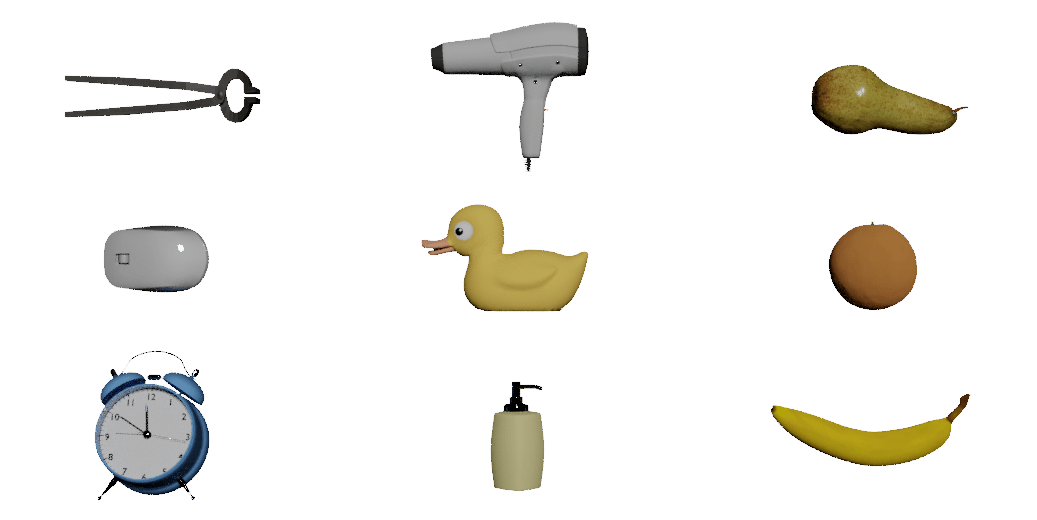Neuer Titel
Results on Project VReha
Publication list
- Belger, J., Blume, M., Quinque, E. M., Akbal, M., Chojecki, P., de Mooji, J., Gaebler, M., Klotzsche, F., Krohn, S., Lafci, M., Tromp, J., Villringer, A., Finke, C. & Thöne-Otto, A. (under review). The immersive Virtual Memory Task: Clinical application of immersive virtual reality for the assessment of object-location memory.
- Belger, J. (2021). DC: Clinical application of immersive VR in spatial cognition: The assessment of spatial memory and unilateral spatial neglect in neurological patients. In Proceedings of the 2021 IEEE Conference on Virtual Reality and 3D User Interfaces Abstracts and Workshops (VRW), 723–724. https://doi.org/10.1109/VRW52623.2021.00244
Presentation list
- Belger, J. & Thöne-Otto, A. (2022, September 9). Virtual Reality Anwendungen in der Neuropsychologischen Diagnostik und Therapie [Symposium]. 37. Jahrestagung der Gesellschaft für Neuropsychologie, Marburg, Germany.
- Belger, J. & Thöne-Otto, A. (2020, December 5). Virtuelle Realität in der klinischen Neuropsychologie: Der Einsatz virtueller Welten für die Diagnostik nach Schlaganfall [Presentation]. 11. Prophylaxe-Seminar des Kompetenznetzes Schlaganfall, online.
- Belger, J., Krohn, S., Finke, C., Tromp, J., Klotzsche, F., Gaebler, M., Villringer, A., Chojecki, P., de Mooij, J., Blume, M., Quinque, E., Thöne-Otto, A. (2020, September). Clinical application of immersive VR for the assessment of spatial memory: A comparison with standardized psychometric tests. 13th International Conference on Disability, Virtual Reality & Associated Technologies, Serpa, Portugal.
- Belger, J., Akbal, M., Blume, M., Chojecki, P., Finke, C., Gaebler, M., Klotzsche, F., Krohn, S., Quinque, E., Tromp,J., Villringer, A. & Thöne-Otto, A. (2019). Einsatz immersiver virtueller Realität zur Erfassung des räumlichen Gedächtnisses in der klinischen Neuropsychologie. Jahrestagung der Deutschen Gesellschaft für Neurorehabilitation DGNR, Leipzig, Dezember 2019.
- Belger, J. et al. (2019, September). A comparison of psychometric tests and immersive Virtual Reality to assess spatial memory in clinical neuropsychology. Poster session presented at the 7th Meeting of the Federation of the European Societies of Neuropsychology, Milan, Italy.
- Belger, J. et al. (2019, July). Immersive Virtual Reality for the Assessment and Training of Spatial Memory: Feasibility in Neurological Patients. Poster session presented at the International Conference on Virtual Rehabilitation (ICVR), Tel Aviv, Israel.
22.12.2020 Release and publication of OpenVirtualObjects
Led by Johanne Tromp, the VReha Consortium released the OpenVirtualObjects (OVO), a freely available collection of 124 standardized 3D household objects for VR-based applications in research and clinical settings (CC-BY 4.0 - "Attribution"). The objects were evaluated and validated by younger and older adults with respect to various dimensions (e.g., recognizability, frequency of use). Further details are described in the corresponding publication in Frontiers in Virtual Reality.

17.12.2020 Stereopsia 2020
Michael Gaebler presented the VReha project at Stereopsia Europe 2020 in the panel "challenges and the future of XR in health".
27.9.2020 Annual Meeting of the Gesellschaft für Neuropsychologie (GNP) 2020
At the 35th Annual Meeting of Gesellschaft für Neuropsychologie (GNP) in September 2020 (virtual), Julia Belger and Michael Gaebler presented results on VR in a neurological context (symposium "Virtual Reality and Serious Games for the Diagnostics and Rehabilitation of Cognitive Impairments"). The slides (German) of Michael Gaebler's presentation can be downloaded as PDF here.
8.12.2019 Annual Meeting of the Deutsche Gesellschaft für Neurorehabilitation (DGNR) 2019
The VReha project and consortium was very present and active at the 26th Annual Meeting of the German Society for Neurorehabilitation (DGNR) in Leipzig (December 2019):
- Angelika Thöne-Otto, Felix Klotzsche and Michael Gaebler organized a symposium on "Virtual Reality in Neurorehabilitation), where Julia Belger also gave a presentation.
- Angelika Thöne-Otto and Michael Gaebler held a workshop where Stephan Krohn and Paul Chojecki shared their experiences.
- Carsten Finke organized a symposium on memory and orientation disorders, where Stephan Krohn gave a lecture.
- Conference participants* were able to try out the immersive virtual memory task (imVMT) in the mobile VR lab VITALAB.mobile
Professional Results on "International Conference on Virtual Rehabilitation 2019"
The “International Conference on Virtual Rehabilitation 2019” (ICVR) was held from July 21st to 24th, 2019 at the University of Tel Aviv in Israel. The aim of the scientific meeting was to provide a holistic overview of applied and clinical research on technologies in the field of virtual rehabilitation. Among the topics addressed by the conference were:
- cognitive, motor and sensory rehabilitation
- haptic interfaces
- vestibular and balance rehabilitation, and
- neuropsychological and environmental rehabilitation
The VReha team made a number of important contributions to this year’s conference: The “immersive Virtual Memory Task (imVMT)”, which has been developed by our consortium, was demonstrated to experts in Virtual Reality and rehabilitation and won the ICVR Best Demo Award.
Furthermore, the following results from the VReha project were presented at the conference:
Johanne Tromp: OpenVirtualObjects: An Open Set of Standardized and Validated 3D Household Objects for Virtual Reality-Based Research, Diagnostics and Therapy
read paper
The VReha consortium created OpenVirtualObjects (OVO), a free and open set of 124 realistic 3-D household objects for VR-based testing, training, diagnostics and rehabilitation. With this open database we hope to facilitate VR-based research and the development of clinical applications.
Stephan Krohn: Multidimensional Assessment of Virtual Reality Paradigms in Clinical Neuropsychology: The "VR-Check" Protocol
read paper
Here we propose an evaluation framework that helps researchers develop the optimal VR test for their research purposes. This framework is the result of the interdisciplinary collaboration within the VReha project.
Julia Belger: Immersive Virtual Reality for the Assessment and Training of Spatial Memory: Feasibility in Neurological Patients
read paper
The first VR task created by the VReha consortium, the immersive Virtual Memory Task (imVMT), was developed and applied to measure spatial memory. Here we present the imVMT as well as preliminary results and examine whether the clinical use of immersive VR is generally feasible in individuals with brain injury.
Mykyta Kovalenko: Intentional, Accurate and Natural Object Placement in VR Based Cognitive Rehabilitation Tasks
read paper
We discuss challenges of developing usable immersive Virtual Reality (VR) tools for neuropsychological and clinical applications are discussed. In particular we focus on aspects of natural, easy-to-use and precise interaction and hand-object manipulation.
7. Conference on Federation of the European Societies of Neuropsychology
The VReha team was represented at the 7th Meeting of the Federation of the European Societies of Neuropsychology
(FESN) with a conference contribution of the "Immersive Virtual Memory Task". The meeting of the Federation, which currently hosts 18 national societies, took place from September 5th to 7th at the Catholic University campus in Milan and mainly focused on top-level scientific and clinical updates for European neuropsychologist. The following results from the VReha project were presented at the conference
Julia Belger: A comparison of psychometric tests and immersive Virtual Reality to assess spatial memory in clinical neuropsychology
The first VR task created by the VReha consortium, the immersive Virtual Memory Task (imVMT), was developed and applied to measure spatial memory in a population of neurological participants. Here we present the imVMT as well as preliminary results and correlations to existing traditional neuropsychological test.


